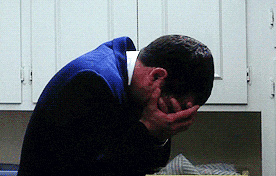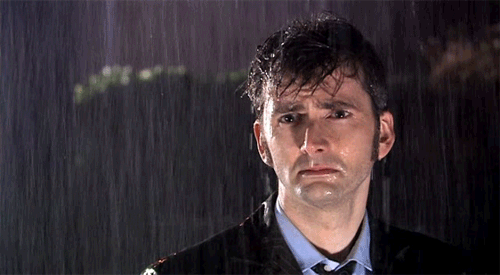Are you a talented journalist with a head for figures? Are you good at breaking business and economics stories while at the same time putting them in plain English? If so, we have a job for you.
Author Archives: admin
Look and feel
I’m having difficulty changing the style of this blog, which has been due for a refresh for nigh on a couple of years now. It crashes every time I change the settings, though I’ve managed to turn comments back on for new posts. I’m not sure if it’s down to an old version of WordPress (which I can’t update right now due to being on an ancient hosting package) or conflicts with my browser, but I’m working on it.
History: Under construction
Cross-posted at Chronica Minora.
I have neglected this blog terribly. It’s not by design, more that life has got in the way. I’m still researching my PhD on Bede and eschatology, but a full-time job and other responsibilities mean I haven’t blogged at all.
I’ve been bitten by the bug again, though, and hope it will make me a more productive writer overall. So it’s fitting that I resume building up my blog with a note about somebody who is literally building history.
Bert Geuten has broken ground on a ninth-century monastic settlement in his native Germany. Yes, a ninth-century one. And it won’t be built in double-quick time, either; it’s envisaged as a 40-year project that will only use the tools available in the time. Geuten is dreaming big – not only will it be a village, but if all goes to plan it will have a 2,000-seater cathedral too.
His team is clearing a site and trying to do things in roughly the same order that the monks would have done. He told The Local:
In the ninth century the monks would have built a small church first – they didn’t want to wait until the cathedral was ready to be able to pray. So we’re doing the same.
The plan is for it to be a tourist attraction, which will allow people to see the site come together and learn about how medieval craftsmen went about their business. One of the things I like is that they will only be serving food that would have been eaten at the time.
I hope this works out. There was a similar project in the US, Ozark fortress, has run into serious financial issues and so has not opened, though its supporters continue to seek new funding on the official website. One wonders what sort of finances would be required to build the likes of House Stark’s seat, Winterfell, for real rather than just the CGI below.
A more successful experiment is that in Guédelon, France, where a 13th-century castle has been under construction for about 15 years.
Guédelon, pictured above in 2009, attracts about 300,000 people a year, which is nothing to be sniffed at.
I’ve always been fascinated by living history buffs and experimental archaeology. For people in those fields, it’s not enough just to learn about history, they want to experience what it was like for themselves, or at least as close as one can get in the 21st century.
The whole idea of building medieval structures also catches my imagination. I’ve been to sites like Carcassonne and Urbino, where the modern mingles with the medieval, and I’ve always been struck not just by the style of architecture but how it has endured and been adapted over the centuries.
I’m not sure where my love of architecture comes from. I’ve always liked the combination of form and function. Part of me wonders if it’s a consequence of, or an attempt to foster the memory of, my father’s father, who was an architect but who died before I was born.
There’s also the sense of imposing on the landscape, of effectively becoming the landscape once the structure has been there for a particular length of time. There are certainly any number of medieval sites scattered across Ireland, some like Ross Castle in Co Kerry or the Rock of Cashel in Co Tipperary as established tourist attractions, others less so. The blog Time Travel Ireland profiles many of those sites off the beaten track and is well worth having a poke through.
I must do more on historical sites and the various books I have about them. History actually is all around us. In some places you have to look a little bit harder than others, but what you might find can be very rewarding.
Older, maybe wiser
I’m approaching a new decade in my life, and it’s making me think. I’m not that bothered about the Significant Birthday, at least not consciously, but I’m fascinated by how many turns my life has taken in the past five years, let alone the last 20-something.
I certainly feel older, or rather things make me feel older.
This is the kind of music I listened to while growing up:
I find the contemporary equivalents dull and soul-less. I’m sure my parents felt the same in may respects.
Life goes on. The world keeps turning. Music keeps playing, and I can’t really complain too much about being on the outside of the music scene as I’m too busy to keep abreast of it anyway.
When I started this blog I was a sub-editor with the Irish Examiner. From there I went to The National in the Middle East, before returning to further my education, doing a bit of teaching, and returning to the Examiner as chief sub-editor, a post I have now held for more than two years. Where has that time gone? And not even the five, nearly six since I moved to the UAE, but the two since I rejoined the Examiner? My industry is barely the same, let alone the rest of the world. Even Superman and Batman have had a reboot in the last few years.
In between returning from the desert and now I got married, bought a house (and battled with Nama along the way), adopted two cats, and I’m soon to be a father for the first time. This has had the most profound effect on me. I’m very much looking forward to being a dad. In fact I can’t wait. But it makes me nervous, more because it’s a great unknown for me than because it’s a scary prospect. I hope I can be a good father to them and that they grow up happy and well. Certainly all of my instincts right now are focused on making sure they have everything they and my wife need. It’s a whole new set of skills that I need to master in double-quick time, and I’m not sure how to even go about starting. That said I know I’ll cope, and not because I have to but because I want to.
There’s so much to look forward to. Reading to them, playing with them, introducing them to the cats, teaching them the little things. It’s also the final stage of growing up (as if getting married and buying a house weren’t grown-up things to do). And yet it’s a new, life-affirming stage which doesn’t make me feel old so much as it makes me feel, well, happy.
So, if this is growing up, bring it on (but please make better music).
The emotions of payday
Research topics
Cross-posted at Chronica Minora
Working on a PhD can be a very isolating experience, even if you’re around loved ones. It’s never easy to explain what you’re doing – not only do you feel self conscious, but for those of us in what you might call more esoteric fields, it can be downright embarrassing.
It’s not that what we exegetical and intellectual historians are doing anything bad, per se. But explaining that you’re examining Bede’s Ecclesiastical History as aneschatological text is going to get you some strange looks. The “ecclesiastical” part will catch the attention for some. The “eschatological” will make others look at you strangely. Explaining what eschatology means is bad enough. I study how Bede built his mental world and how his beliefs about the end of time and geography influenced how he wrote. However, the mention of apocalyptic thinking concerning a Christian writer tends to get you pigeon-holed unnecessarily, and often without follow-up questions. You can tell by the look in the eyes.
So it was with some relief and not a bit of anticipation that myself and 9 fellow Bedans got together at University College Cork last week for a symposium on our research concerning the man himself.
No need to be embarrassed. No need to explain the basics for those who’ve never heard of the guy. Just a chance to talk about the research and bounce a few ideas around the table without an audience. It was also a chance to meet with Peter Darby, who has just published a book on Bede and the end of time (which gave me unfounded panic attacks concerning my own PhD). He’s rather nice.
What was particularly interesting was the breadth of our studies, and we were just a small band of Bedan scholars in one part of the world (from peoples once described byCummian as “pimples on the face of the Earth“, I must add). Even where our work was in a similar broad field – such as mine and Peter’s – we have gone about it in completely different ways and looked at different source material in many areas.
Many of us, in fact all of us except for Peter, have been moulded in some ways byJennifer O’Reilly, who also attended the roundtable. At a conference in Galwayrecently I and a couple of other graduates from Cork’s medieval studies courses were described as “the grandchildren of Jennifer O’Reilly”, which has a certain accuracy. Her analysis of Bede’s ouevre has greatly influenced all of our work, which was apparent during the discussion.
In many ways, we are following in her footsteps, while synthesising an array of different materials into new, original works. Bede might approve.




